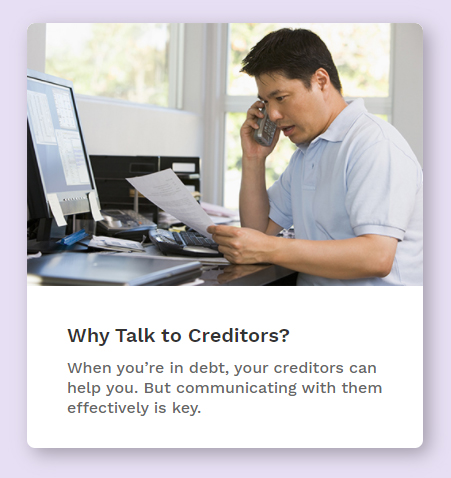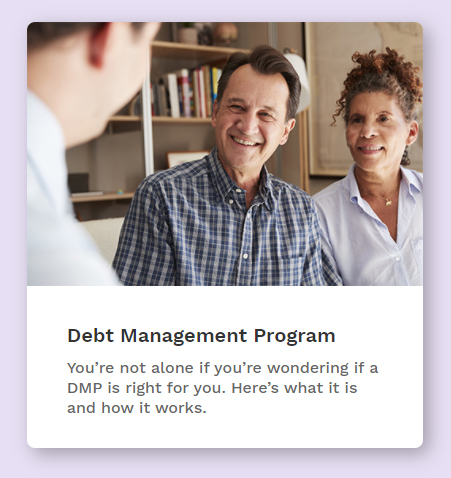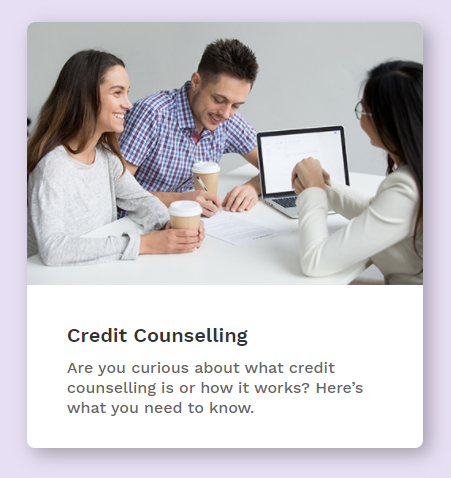5 Warning Signs that You Might Have Too Much Debt
by Kevin Sun
Not sure how much debt is too much and worried you might be in trouble? Many Canadians have the same concern. After all, unlike your vehicle’s fuel gauge or home smoke detector, there’s no convenient device that will tell you when you need debt relief. While banks have a debt load formula based on your debt to income ratio, it’s very possible for them to approve you for more credit than you might actually be able to afford. Here are 5 warning signs that you might have a debt problem and what you can do instead:
Relying Too Much on Credit: 1st Warning Sign
Relying too much on credit is one of the surest signs that you have too much debt. But what does this actually mean? It’s not as simple as looking at how much money you owe or how many credit cards you have. Relying too much on credit means that you can’t afford your routine expenses with the money you bring in each month.
Here’s how to see where you stand. Imagine that tomorrow, you can no longer buy anything on credit. If you’re already making payments on a house, student loan, or car, then those are fine, but you can’t use any credit cards or lines of credit at all. What amount of time could you last doing this? A week? A month?
If you think you can last a month, put that confidence to the test and stop using credit for 30 days. This means that whether you’re buying groceries, clothes, or anything else, you’re only using money in your chequing account and cash in your wallet. Now, this definitely won’t be convenient, especially for products and services like subscriptions or your phone bill.
So what can you do instead of relying too much on credit? Whenever there’s a payment you just have to make with a credit card, repay it on the same day through online banking. If that’s not practical, put the payment amount into an envelope or savings account and don’t touch it until the 30 days are up. If you find yourself struggling to buy things you usually get without a second thought, then you might be relying too much on credit in your daily life.
Only Making Minimum Credit Card Payments: 2nd Warning Sign
Making only minimum credit card payments is a trap that many Canadians unfortunately fall into After all, you’re still making the monthly payments that your creditors require, and you might still have a good credit score. However, behind this illusion of stability is an ever-widening chasm of progressive risk.
Why are minimum payments a problem? Making only minimum payments means you’re just keeping up but not getting ahead or paying the debt down in any significant way. The interest you pay eats into the money you have to spend, which might then cause you to use more credit to make up for it. This new credit will have its own interest, continuing the cycle. Before you know it, your balance might become so high that you can no longer afford even the minimum payments, and those are just the tip of the debt iceberg. This is a red flag showing you need help as soon as possible, especially if you’re using other forms of credit – like a high-interest payday loan, or cash advance – to pay off debt you already have.
So what can you do instead of making only minimum payments? It’s crucial to bring your spending down. If you’re getting close to this debt cliff, get help right away. You’ll have more debt relief options if you do, plus you’ll sleep better knowing you’ve got a plan.
Not Using a Budget: 3rd Warning Sign
Those who don’t plan what to do with their pay cheques often simply aren’t sure how to budget money. Does this sound like you too? It’s true that some people do just fine without ever thinking about budgeting. Others manage with an alternative way of budgeting where they just keep a list of what they’re spending versus keeping track of their bank account by memory. However, most people who have debt problems can see a real and immediate improvement to their financial situation as soon as they make and follow a budget.
Why is not using a budget a problem? Many people feel overwhelmed at the thought of creating and then following a budget. They don’t like having to keep track of what they’re spending. This can feel stressful, but ignoring expenses won’t make them go away. It will just make it harder to get your finances back on track.
All a budget really does is help you stick to the choices you make ahead of time for how you want to use your money. In the end, having a plan and following through with it will do more for you than any financial program out there. The best debt help organizations will also provide budgeting help. If you need that extra push and expertise to make a budget that works for you, then we’re happy to help you with that.
No Savings for a Financial Emergency: 4th Warning Sign
If there’s one thing that the last few years have shown us, it’s that anything can happen at any time and that having savings for a financial emergency is crucial. Being prepared for unexpected expenses is one of the world’s best debt solutions because when an emergency does happen, you won’t need to get into debt for it at all.
Yet when you’re already struggling with debt, only affording minimum payments, or not following a budget, it’s hard to put money aside for that inevitable rainy day. However, savings is one of your most important expenses when you outline your budget. It’s nearly impossible to get out of debt without it. If you can’t build up any savings at all, then how much debt you have might be worse than you realize. The longer you wait to get professional credit counselling help, the more time you’ll spend being financially vulnerable to the unexpected.
Should I Pay Off Debt or Save Money?
Being Worried About How Much Debt You Have: 5th Warning Sign
If you’re thinking about how much debt you have, and wondering if it’s too much, you likely have a problem. When it comes to your financial health, there’s no such thing as being too careful. The fact that you’re worrying about debt and have read this far means that it’s worth taking the time and effort to figure out how to pay down your debts and get back on track.
The fix? Debt is a symptom, so it’s important to go deeper and identify the reasons why you’re in debt. Until you know what’s causing your debt problem, you won’t be able to explore possible solutions. No one knows your situation better than you do, so if your gut says you might need to make a change, then listen to it. We know that taking the first step to deal with your debts can feel like a big obstacle to overcome. Yet by taking that step, you’ll start on the path to a better financial future for yourself and your family.
How to Find Debt Help Options When You Think You Have Too Much Debt
If any of the warning signs make you think that you have too much debt, start your journey towards overcoming debt by speaking with one of our friendly credit counsellors. A professional counsellor can help you review your financial situation and explore debt help options so that you can decide on the solution which works best for you. As a non-profit organization, we are dedicated to helping Canadians achieve financial wellbeing. Our work is backed by reviews as well as national and international accreditations. Appointments are also free and confidential. Take your first step towards getting rid of your debts today by calling us at 1-888-527-8999, sending us a quick email, or asking us a question anonymously online.
Last Updated on August 14, 2024







